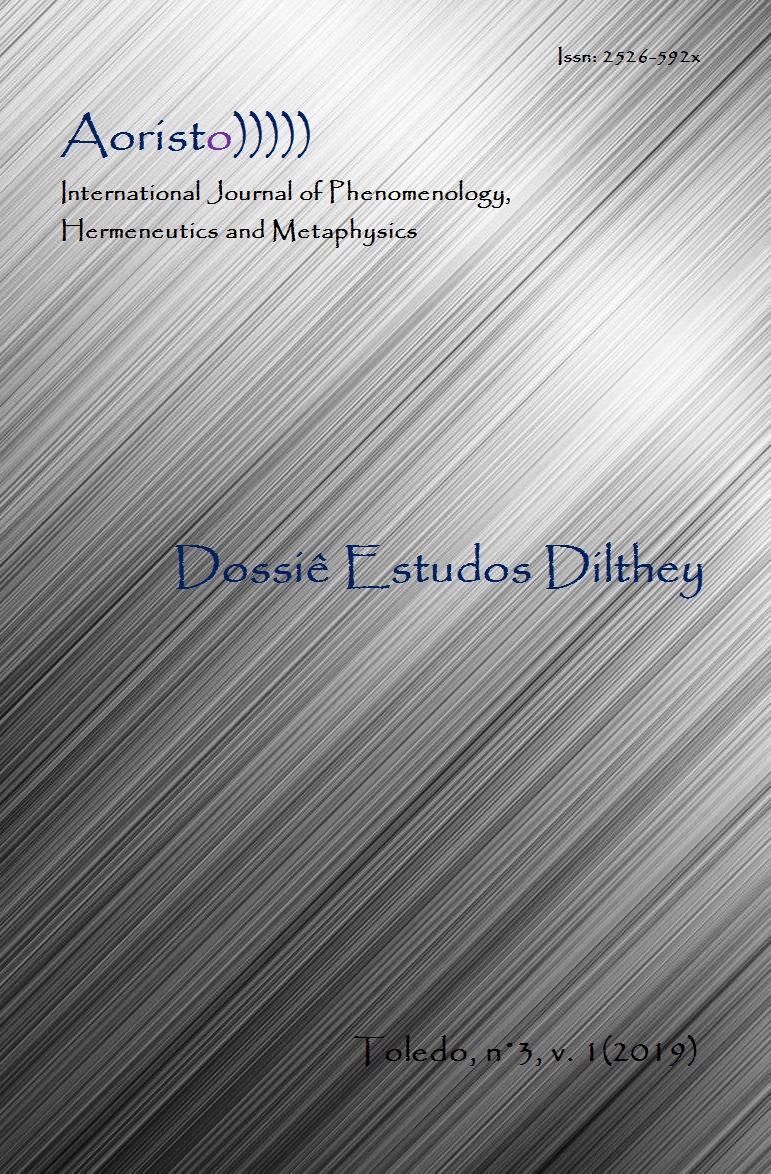“Empirie und nicht empirismus”:
Diltheys verhältnis zu Auguste Comte und zum positivismus seiner zeit
DOI:
https://doi.org/10.48075/aoristo.v2i1.21562Palabras clave:
Empirie, Empirismus, Positivismus, Comtes Geschichtsphilosophie, DiltheyResumen
„Empirie, nicht Empirismus“ ist eines von den fundamentalen Prinzipien in Diltheys Denken. Es ist entgegengesetzt der Metaphysik (bes. Hegels und jeder Form von Idealismus) auf der einen und dem Positivismus auf der anderen Seite. Der Positivismus, die vorherrschende Richtung der Philosophie in der 2. Hälfte des 19. Jahrhunderts, wird zwar von A. Comte zu einem System der rein empirischen Philosophie ausgestaltet, aber schon von ihm und dann von einigen seiner Nachfolger in der Wende zu einer ‚positiven Religion‘ aufgelöst. Dilthey wendet sich gegen Comtes Geschichtsphilosophie und gegen die Ausweitung der Grundsätze, die aus den Naturwissenschaften stammen, in die Geisteswissenschaften, etwa die Übertragung empiristischer Grundsätze auf die Geschichte (H. Th. Buckle). Außerdem, so Dilthey, ist der Positivismus nicht in der Lage, eine praktische Philosophie zu entwickeln, die der Vielzahl der Weltanschauungen im 19. Jahrhundert gerecht wird.Descargas
Publicado
Cómo citar
Número
Sección
Licencia
Derechos de autor 2019 Aoristo - International Journal of Phenomenology, Hermeneutics and Metaphysics

Esta obra está bajo una licencia internacional Creative Commons Atribución-NoComercial-SinDerivadas 4.0.
Copyright Notice
1. I grant the AORISTO – International Journal of Phenomenology, Hermeneutics and Metaphysics the first publication of my article, licensed under Creative Commons Attribution (which allows sharing of work, recognition of authorship and initial publication in this journal).
2. I confirm that my article is not being submitted to another publication and has not been published in its entirely on another journal. I take full responsibility for its originality and I will also claim responsibility for charges from claims by third parties concerning the authorship of the article.
3. I also agree that the manuscript will be submitted according to the Aoristo’s publication rules described above.
License Creative Commons
This work is licensed under a Creative Commons Atribuição-NãoComercial-CompartilhaIgual 4.0 Internacional, which allows you to share, copy, distribute, display, reproduce, in whole or in part, for as long as there is no commercial purpose, and authors and source are cited.


